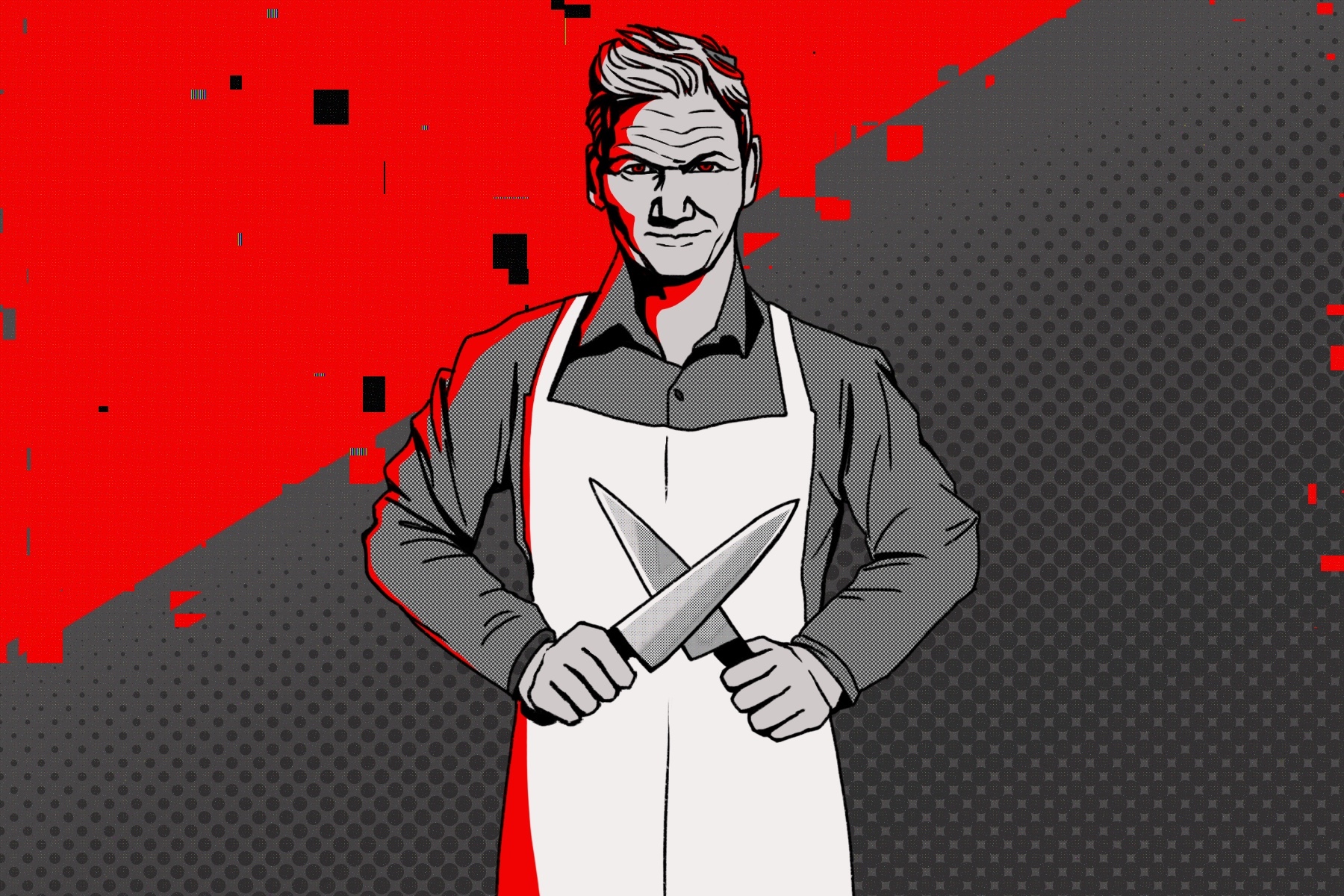I blame my newfound love of reality TV on Gordon Ramsay.
More specifically, I blame it on his 2007 hit program “Kitchen Nightmares.”
In past years, my taste in television has rarely veered away from the traditional sitcom format. Nevertheless, on a whim, I ventured into the dark depths of the Hulu archives to find a program that was a mere fever dream from childhood. Its premise was simple: Gordon Ramsay visits the worst restaurants in America and attempts to turn them around in the course of a week.
Ramsay’s reputation precedes him; this titan of cuisine has maintained his position as one of the culinary world’s best and brightest for the better part of two decades. He has held 16 Michelin stars over the course of his career, maintaining seven to this day. His net worth currently stands at $220 million, making him the third richest celebrity chef in the world. Nevertheless, it’s not his illustrious career as a chef that has cemented Ramsay in the public consciousness.
It’s his temper.
Gordon Ramsay will go down in history, not for his Michelin stars, his restaurant empire or even his fleet of successful reality TV shows. He will go down in history for being a cantankerous perfectionist with no qualms about putting incompetent chefs in their place. His penchant for bluntness and his attention to detail make Ramsay an equally charismatic and terrifying opponent to the chefs he works with. The chefs and restaurant owners on “Kitchen Nightmares” oftentimes bring their egos with them on the show and despite their evident incompetence, attempt to vindicate their decisions. Ramsay responds in kind with the vitriol of a cranky pitbull, verbally eviscerating anyone who dares challenge his authority. Hence the program itself is a crucible of high tempers and scrumptious drama.
True to form, the reality program is sure to select only the gaudiest and most mercurial of candidates to host Ramsay’s critiques. The restaurants featured typically face a variety of issues that include, but are not limited to, poor management, extreme debt, low customer turnout and just downright bad food. Ramsay’s intervention is designed to not only save these failing businesses but to help them thrive. The weeklong timeline of restaurant improvement is compressed into roughly 45 minutes, creating a condensed narrative of struggle and redemption that satisfies the most starving of audiences.
There’s something immensely satisfying about the way Ramsay exerts his rage over the restaurateurs he works with. It’s cathartic. Perhaps the program speaks to the universal fantasy of telling one’s boss what you really think of them. Whatever the case may be, it’s immensely entertaining to watch. To quote New York Times reporter Ginia Bellafante, “The thrill of watching Mr. Ramsay is in witnessing someone so at peace with his own arrogance.”
Perhaps this arrogance is what keeps viewers like me coming back to the program episode after episode. The formula is by no means a complex one: the restaurant is failing, Ramsay comes to help, Ramsay yells at the owner, the owner yells back, Ramsay yells louder, the owner learns from their mistakes, the restaurant improves, Ramsay leaves. The narrative repeats itself in perpetuity, and yet, it never ceases to deliver on its promises. The show delivers conflict on a silver platter, piping hot and ready to be devoured.
Furthermore, the show is one of redemption. By the end of each episode, we get to witness Chef Ramsay turn a lackluster eatery into a business with the potential to succeed in the increasingly competitive culinary industry. It leaves viewers with a consistent and recognizable sense of resolution in seeing Ramsay bring wayward restaurant employees and owners back into the fold. Furthermore, the eventual return to grace of these establishments further ingratiates Ramsay with his audience. His fiery facade obscures a genuine passion for his work, one that he seeks to kindle in the chefs and restaurant owners he works with.
The general assumption that Ramsay is an ornery snob with a flair for the dramatic is by no means unfounded. Notwithstanding, in his career as a celebrity chef, he has revealed facets of his character that are often ignored by the public eye. While highlight reels of programs such as “Hell’s Kitchen,” “Kitchen Nightmares” and “MasterChef” may paint Ramsay as a tyrannical monster, ardent fans know better. Perhaps Ramsay’s tirades are merely the byproduct of the situations in which he finds himself.
One of the most memorable episodes of “Kitchen Nightmares” details Ramsay’s time at an establishment called Sebastian’s (Season 1, Episode 6). Ramsay visits Sebastian, a part-time actor and self-taught chef. After serving Chef Ramsay a dinner of overcooked steak, watery pizza and frozen calamari, he reveals that his business is tanking despite its prime Hollywood location and what he dubs his “menu concept.” This concept is as convoluted as the owner himself and oftentimes takes over 20 minutes for the waitstaff to explain to guests.
In an attempt to bring back the few customers Sebastian’s has retained, Ramsay fully revamps the menu, rebranding the restaurant as a hip pizzeria. Infuriated, Sebastian attempts to sabotage the dinner service by re-integrating his menu into the kitchen, thoroughly confusing the kitchen staff. The episode reaches a climax when Ramsay, infuriated by Sebastian’s antics, leaves the restaurant. Sebastian then follows him out, enraged, only for Ramsay to look him in the eyes and tell him that there is no one he has believed in as little as Sebastian.
And that’s merely the first season. Circumstances like this help viewers understand precisely why Ramsay acts the way he does, and why he’s justified in doing so. Circumstances like this keep loyal fans like myself watching reruns of the show seven years after its final season. “Kitchen Nightmares” is by no means high art, but the scrumptious drama, the delectable casting and the hearty predictability culminate in a midnight snack that I’ll come back to time and time again.

















